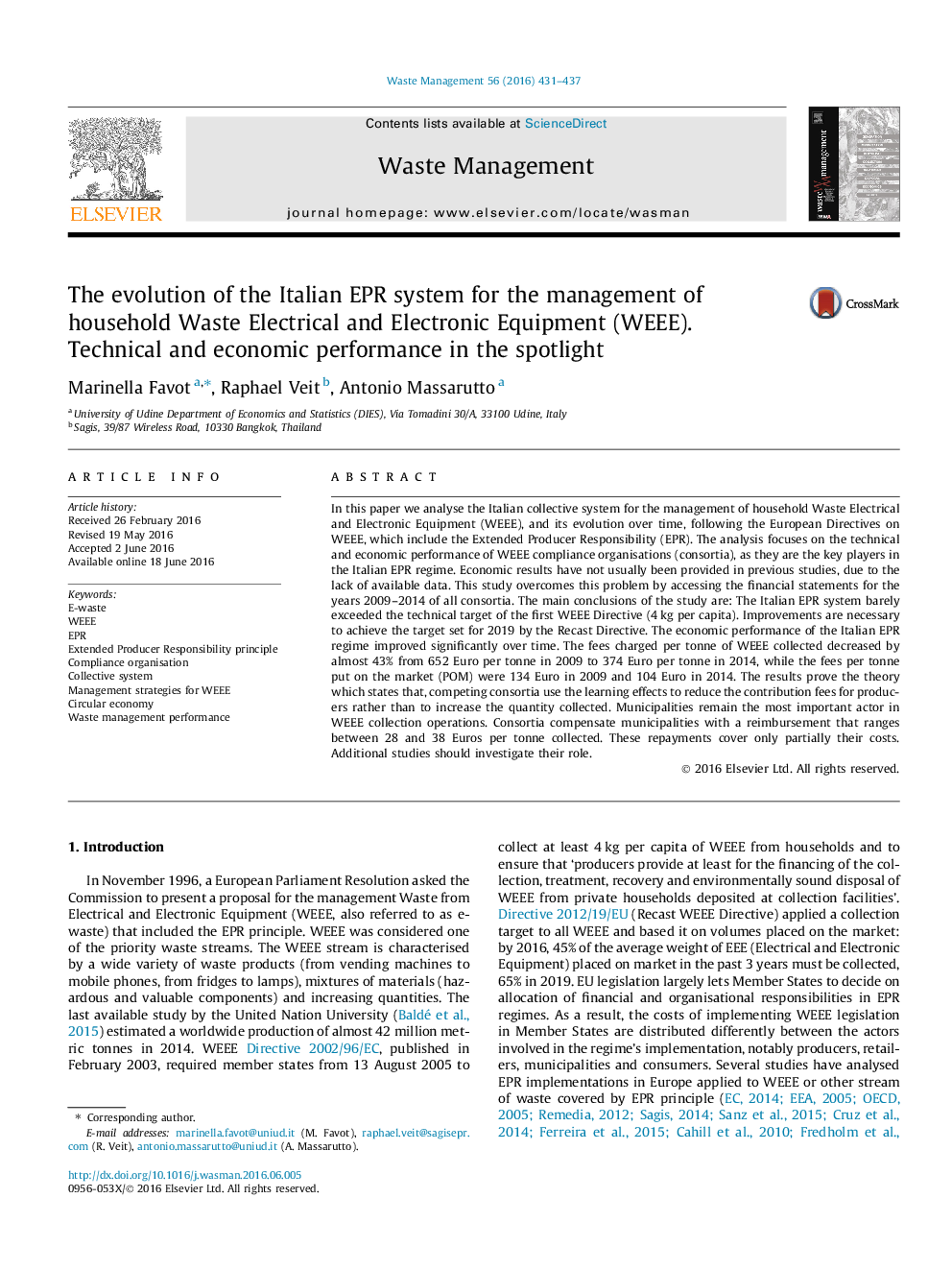| کد مقاله | کد نشریه | سال انتشار | مقاله انگلیسی | نسخه تمام متن |
|---|---|---|---|---|
| 4471153 | 1622630 | 2016 | 7 صفحه PDF | دانلود رایگان |
• EPR regime for B2C WEEE in Italy barely achieved the technical performance.
• Business sector reports an high volume of WEEE collected that might hide B2C WEEE.
• Average production costs of compliance organisations decreased over time.
• The consortia use their learning effects to improve the economic performance.
In this paper we analyse the Italian collective system for the management of household Waste Electrical and Electronic Equipment (WEEE), and its evolution over time, following the European Directives on WEEE, which include the Extended Producer Responsibility (EPR). The analysis focuses on the technical and economic performance of WEEE compliance organisations (consortia), as they are the key players in the Italian EPR regime. Economic results have not usually been provided in previous studies, due to the lack of available data. This study overcomes this problem by accessing the financial statements for the years 2009–2014 of all consortia. The main conclusions of the study are: The Italian EPR system barely exceeded the technical target of the first WEEE Directive (4 kg per capita). Improvements are necessary to achieve the target set for 2019 by the Recast Directive. The economic performance of the Italian EPR regime improved significantly over time. The fees charged per tonne of WEEE collected decreased by almost 43% from 652 Euro per tonne in 2009 to 374 Euro per tonne in 2014, while the fees per tonne put on the market (POM) were 134 Euro in 2009 and 104 Euro in 2014. The results prove the theory which states that, competing consortia use the learning effects to reduce the contribution fees for producers rather than to increase the quantity collected. Municipalities remain the most important actor in WEEE collection operations. Consortia compensate municipalities with a reimbursement that ranges between 28 and 38 Euros per tonne collected. These repayments cover only partially their costs. Additional studies should investigate their role.
Journal: Waste Management - Volume 56, October 2016, Pages 431–437
